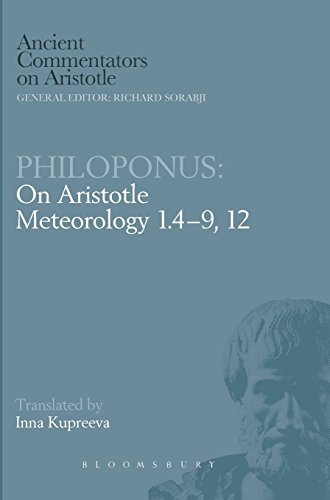

Most ebook files are in PDF format, so you can easily read them using various software such as Foxit Reader or directly on the Google Chrome browser.
Some ebook files are released by publishers in other formats such as .awz, .mobi, .epub, .fb2, etc. You may need to install specific software to read these formats on mobile/PC, such as Calibre.
Please read the tutorial at this link: https://ebookbell.com/faq
We offer FREE conversion to the popular formats you request; however, this may take some time. Therefore, right after payment, please email us, and we will try to provide the service as quickly as possible.
For some exceptional file formats or broken links (if any), please refrain from opening any disputes. Instead, email us first, and we will try to assist within a maximum of 6 hours.
EbookBell Team

0.0
0 reviewsOf Philoponus' commentary on the Meteorology only that on chapters 1-9 and 12 of the first book has been preserved. It is translated in this series in two volumes, the first covering chapters 1-3; the second (this volume) chapters 4-9 and 12. The subjects discussed here include the nature of fiery and light phenomena in the sky, the formation of comets, the Milky Way, the properties of moist exhalation, and the formation of hail. Philoponus pays special attention to the distinction between the apparent and the real among the sky phenomena; he criticises Aristotle's theory of the Milky Way as sublunary, and argues for its origin in the heavenly realm; gives a detailed exposition of Aristotelian theory of antiperistasis, mutual replacement of the hot and the cold, as the mechanism of condensation and related processes. As in the first volume, Philoponus demonstrates scholarly erudition and familiarity with methods and results of post-Aristotelian Greek science. Despite the fragmented state of the work and the genre of commentary, the reader will find the elements of a coherent picture of the cosmos based on a radical re-thinking of Aristotelian meteorology and physics. The volume will be of interest to all students of ancient and medieval philosophy, history of Early Modern philosophy, history and philosophy of science.